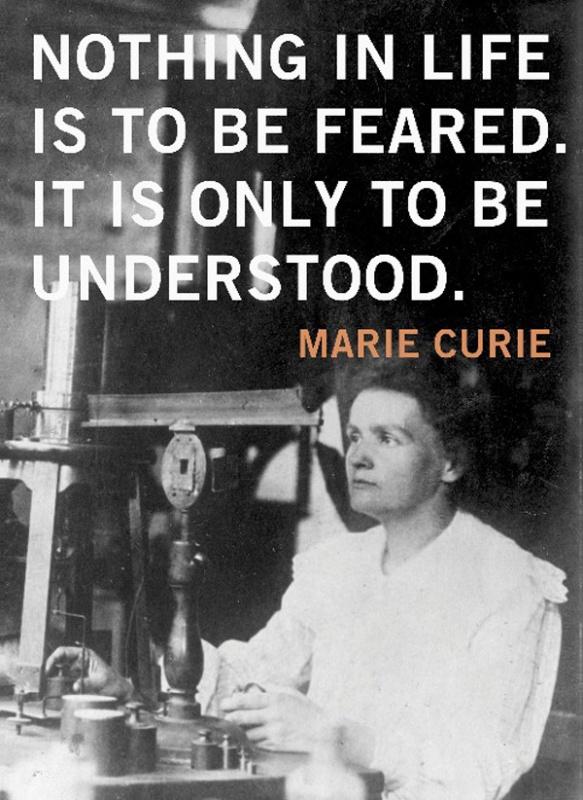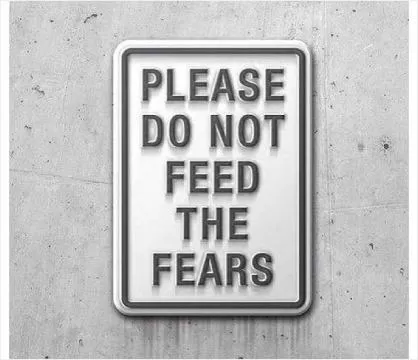Nothing in life is to be feared only to be understood

Nothing in life is to be feared only to be understood
Marie Curie, a pioneering scientist and the first woman to win a Nobel Prize, embodied the idea that "nothing in life is to be feared, only to be understood." Throughout her life, Curie faced numerous challenges and obstacles, but she never let fear hold her back. Instead, she approached each new discovery with a sense of curiosity and a determination to understand the world around her.Born in Poland in 1867, Curie's early life was marked by tragedy and hardship. Despite the loss of her mother at a young age and the limited opportunities available to women in her time, Curie pursued her passion for science with unwavering dedication. She moved to Paris to study at the Sorbonne, where she met her future husband, Pierre Curie. Together, they conducted groundbreaking research on radioactivity, a term that Marie herself coined.
Despite the risks associated with working with radioactive materials, Curie never shied away from her research. She understood the potential dangers but believed that the benefits of her work far outweighed the risks. Her discoveries revolutionized the field of physics and chemistry, earning her two Nobel Prizes and cementing her legacy as one of the greatest scientists of all time.
Curie's fearless pursuit of knowledge and understanding serves as an inspiration to us all. She faced discrimination and skepticism from her male colleagues, but she never let their doubts deter her. Instead, she focused on her work and let her results speak for themselves. By embracing the unknown and pushing the boundaries of scientific knowledge, Curie paved the way for future generations of women in STEM fields.












 Friendship Quotes
Friendship Quotes Love Quotes
Love Quotes Life Quotes
Life Quotes Funny Quotes
Funny Quotes Motivational Quotes
Motivational Quotes Inspirational Quotes
Inspirational Quotes